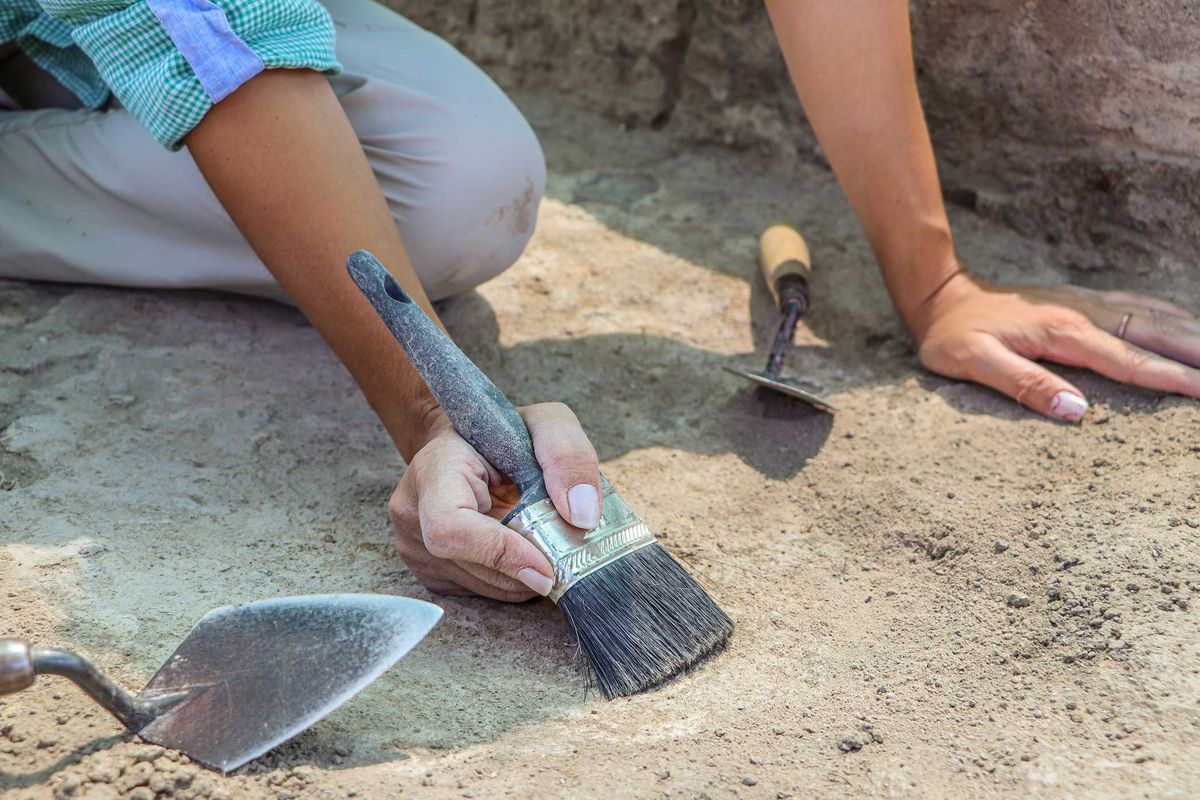Sinead Butler
Oct 12, 2025
Türkiye: Archaeologists discover 60 tombs dating back 2,200 years in Western Türkiye
StringersHub / VideoElephant
Archaeologists in Turkey have uncovered an ancient ritual site while excavating the ancient city of Attouda, located near the modern-day Turkish city of Denizli and believe the "sacred" cave was dedicated to a mother goddess.
What did experts find and what have they learned from this discovery? Here is everything you need to know.

The site and the Phrygians
The site is thought to have dated back around 2,600-2,800 years ago, built by the Phrygians whose kingdom existed in the region sometime around 1200 and 650 B.C., with King Midas being the kingdom's most famous ruler.
Matar, the Phrygian Mother Goddess, who is also known as "Cybele" or "Kybele", was a deity associated with fertility and nature and was also worshipped by ancient Greeks and the Romans, and so Matar had an impact beyond the Phrygian kingdom.
What did experts find?
From their ongoing excavation, the team has discovered a monument, a sacred cave, and a “twin rock idol” in dedication to Matar.
“In addition to the structures and the twin rock idol, we have brought to light numerous rock-carved libation bowls, wells, and run-off channels associated with grain and liquid libations [offerings] made in fertility and harvest ceremonies dedicated to the Phrygian Mother Goddess Matar to honor nature’s abundance and the bounty bestowed by the goddess,” explained Yilmaz Kolanci from Pamukkale University, according to Arkeolojihaber as per Turkey Today.
Upon their research, the team reckon the site was used for ceremonial and ritual purposes after unearthing bowls and channels that would've been used to collect offerings.
What do these findings mean?
As a result of their findings in what is now modern-day Turkey, it appears the Phrygian religion's influence during this time period was geographically much further to the west than previously estimated by experts.
“It is actually not so surprising to find a Phrygian shrine like this in the region near Denizili,” Lynn Roller, a professor emeritus at the University of California, Davis, told Live Science.
Roller, who was not involved in the study, added, “Denizli is fairly close to ancient Hierapolis—modern Pamukkale—and the Italian Archaeological Mission that has been working in Hierapolis for many years has discovered an early Phrygian shrine within the ancient city.”
Furthermore, Roller noted similarities between this site and other previously discovered Phrygian sanctuaries.
“This sanctuary offers rare and tangible evidence of rituals performed for the Mother Goddess,” Kolanci said, according to Anatolian Archaeology. “It reshapes our understanding of the Phrygians’ religious landscape.”
He also added that this research is ongoing, with the findings to be published in the future.
Elsewhere from indy100, A newly found ancient language in Turkey is yielding new discoveries, and Archaeologists discover mysterious structures at the ‘gates of hell’.
How to join the indy100's free WhatsApp channel
Sign up to our free indy100 weekly newsletter
Have your say in our news democracy. Click the upvote icon at the top of the page to help raise this article through the indy100 rankings.
Top 100
The Conversation (0)














